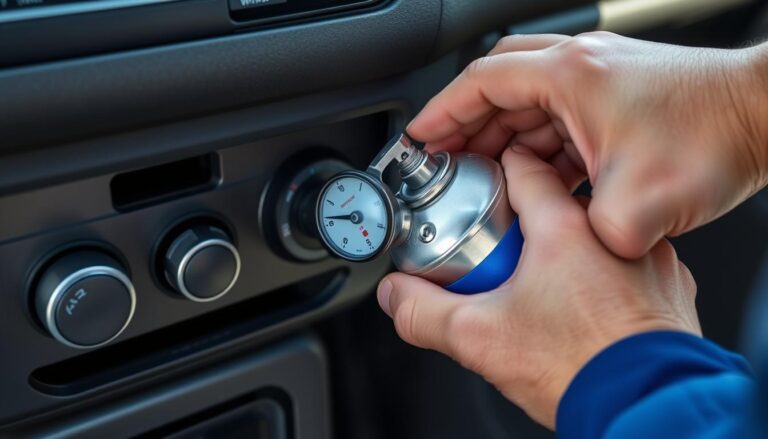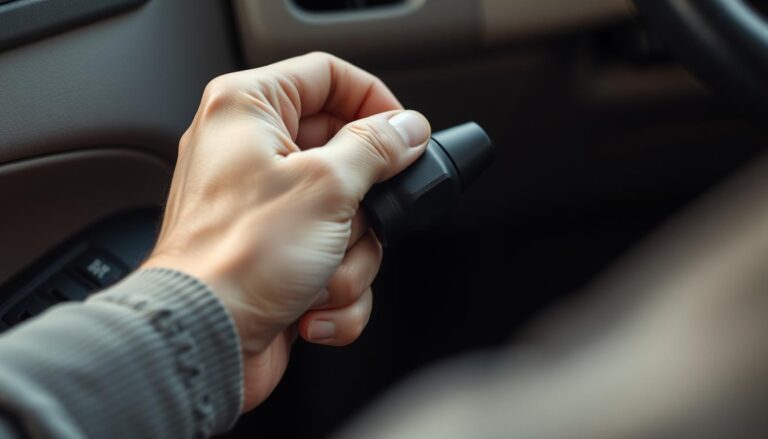When choosing between a 3/8 and 1/2 torque wrench, consider the torque range needed for your specific tasks. The 3/8 wrench is ideal for lighter tasks, while the 1/2 wrench is suitable for heavier-duty applications.
Selecting the right size torque wrench can make a significant difference in the accuracy and efficiency of your work. Both 3/8 and 1/2 torque wrenches have their own advantages and best use cases. To make an informed decision, it’s essential to understand the differences between these two types of wrenches.
In this guide, we’ll explore the key factors to consider when choosing between 3/8 and 1/2 torque wrenches, helping you determine which one is most suitable for your specific needs.
Torque Wrench 3/8
The Torque Wrench 3/8 is a versatile tool suitable for a wide range of applications. Its small size and high precision make it ideal for tightening bolts and screws in confined spaces. The compact design of the 3/8 wrench allows for precise torque adjustments in areas where larger tools may not fit. Additionally, the 3/8 wrench is commonly used in automotive repairs and maintenance due to its ability to handle smaller fasteners with accuracy.
Torque Wrench 1/2
Torque Wrench 3/8 Vs 1/2
When it comes to torque wrenches, the 1/2 size is a popular choice for heavy-duty applications. Its larger size allows for higher torque settings, making it ideal for tasks that require greater precision and control. The 1/2 torque wrench typically features a longer handle and a wider range of torque settings, making it versatile for various projects. Additionally, it offers increased durability and reliability for heavy-duty use. In addition to heavy-duty automotive work, the 1/2 torque wrench is commonly used in industrial settings, construction, and mechanical assembly. The higher torque capacity of the 1/2 torque wrench makes it suitable for applications that demand higher torque settings. Moreover, its robust design and precise calibration make it a dependable tool for professional mechanics and DIY enthusiasts alike.
Difference In Performance
A torque wrench is an essential tool in any mechanic’s toolbox. When it comes to torque wrenches, two common sizes are 3/8 and 1/2 inch. These two sizes have their differences in performance, making them suitable for specific torque requirements.
The 3/8-inch torque wrench typically has a lower torque capacity than the 1/2-inch counterpart. It is ideal for lighter applications where precision and accuracy are paramount. The 1/2-inch torque wrench, on the other hand, offers a higher torque capacity, making it suitable for heavier-duty applications. This size is commonly preferred when working with larger fasteners or when higher torque levels are required.
Both sizes have their advantages and limitations. The 3/8-inch torque wrench provides more control for delicate jobs, such as working with smaller fasteners or sensitive materials. The 1/2-inch torque wrench, with its higher torque capabilities, is better suited for heavy-duty tasks like automotive repairs or industrial applications.
In conclusion, the torque wrench size chosen depends on the specific needs and requirements of the job at hand. Assessing the torque demands and understanding the differences in performance between the 3/8-inch and 1/2-inch sizes play a crucial role in achieving accurate and reliable results.
Which To Choose?
When deciding between a 3/8 and a 1/2 torque wrench, your own preferences and needs play a crucial role. Consider the types of projects you usually work on and the range of torque values required. It’s important to assess the size and weight of the tool, the ergonomics, and ease of use. Think about the accuracy and calibration features that you need for your projects. Keep in mind the price point and value for money. Ultimately, the choice between a 3/8 and a 1/2 torque wrench depends on your individual requirements and comfort level.
Frequently Asked Questions
Which Is Better, 1/2 Or 3/8 Impact Wrench?
The 1/2 impact wrench is better for heavy-duty jobs, while the 3/8 impact wrench is ideal for lighter tasks.
Do I Need A 1/2 Inch Or 3/8 Inch Torque Wrench?
The size of the torque wrench you need depends on the specific task. For smaller fasteners, a 3/8 inch torque wrench is suitable, while a 1/2 inch is ideal for larger fasteners. Consider the size of the bolts or nuts you’ll be working with to determine the right torque wrench size for your needs.
What Is A 3 8 Torque Wrench Used For?
A 3 8 torque wrench is used to tighten bolts and nuts with a specific amount of force. It helps ensure that fasteners are properly secured, preventing over-tightening or under-tightening. This type of wrench is commonly used in automotive, mechanical, and construction applications.
Is A 3 8 Torque Wrench Good For Lug Nuts?
Yes, a 3 8 torque wrench is good for lug nuts. It provides enough torque for secure tightening.
Are Torque Wrenches Interchangeable Between 3/8 And 1/2 Drives?
Yes, torque wrenches are not interchangeable between 3/8 and 1/2 drives due to differences in size and compatibility.
Conclusion
In choosing between a 3/8 and 1/2 torque wrench, consider the specific tasks you’ll be performing. Each size has its advantages, so understanding their differences is key. 3/8 wrenches are great for light work, while 1/2 wrenches are ideal for heavy-duty applications.
Ultimately, the best choice depends on your needs and preferences.


